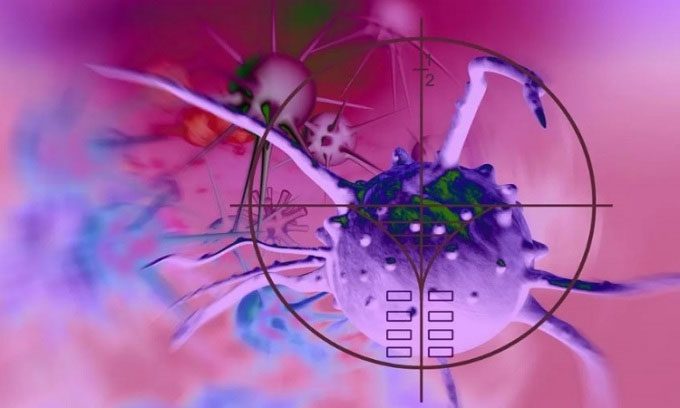A research team from Osaka University has discovered that nematodes can be encapsulated in a hydrogel shell containing useful compounds such as cancer treatment drugs.

Nematodes carrying drugs in a hydrogel shell will kill cancer cells. (Photo: Sci Tech Daily)
Japanese scientists are using tiny worms known as nematodes to transport drugs to targets through a hydrogel coating. Nematodes typically live in soil or other environments. In some cases, they can invade the human body. Anisakis simplex, a marine nematode species, can inhabit the human body when ingested and has a particular affinity for cancer cells.
“Anisakis simplex can detect the ‘smell’ and attach to cancer cells,” said Wildan Mubarok, the lead researcher. “This made us wonder if we could use them to directly deliver treatment drugs to cancer cells inside the human body.”
To explore this possibility, the research team first developed a system to coat the nematodes in a hydrogel shell by immersing them in a series of solutions containing cross-linking chemicals, creating a gel-like coating over the surface of the worms. Essentially, this process resulted in a shell about 0.01 mm thick that snugly envelops the worms within 20 minutes. According to Shinji Sakai, a co-author of the study, the coating does not affect the survival of the nematodes, being elastic enough for the worms to continue moving, seeking out smells and chemical signals.
Next, the researchers introduced useful molecules into the coating and found that this protected the nematodes from ultraviolet light or hydrogen peroxide. Furthermore, the hydrogel shell can contain anti-cancer drugs. Protected by the hydrogel, the nematodes can transport and deliver drugs that kill cancer cells in vitro.
With the high adaptability of the hydrogel shell, this nematode-based system promises not only to deliver drugs to cancer cells in patients but also has many potential applications in other fields, such as delivering beneficial bacteria to plant roots.



















































